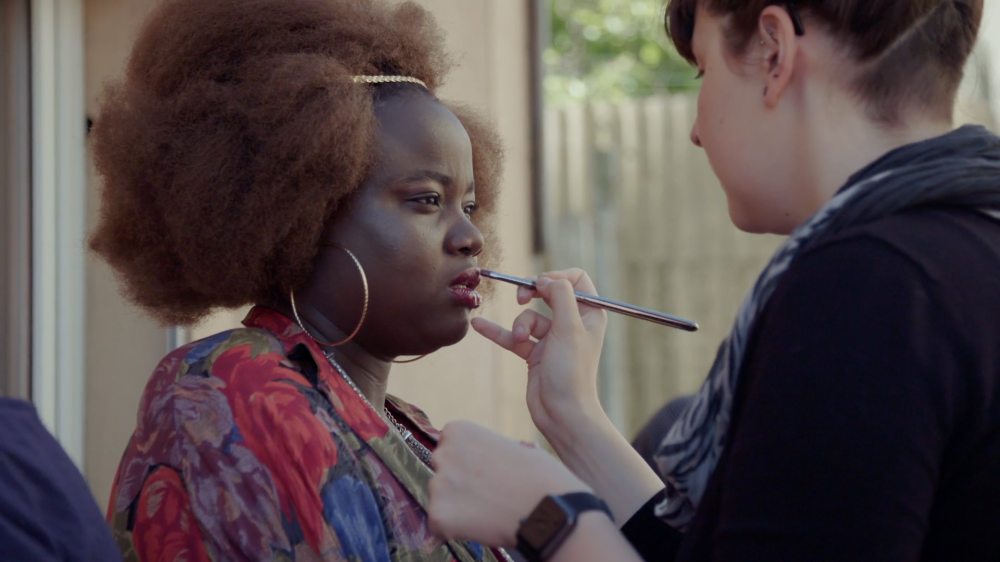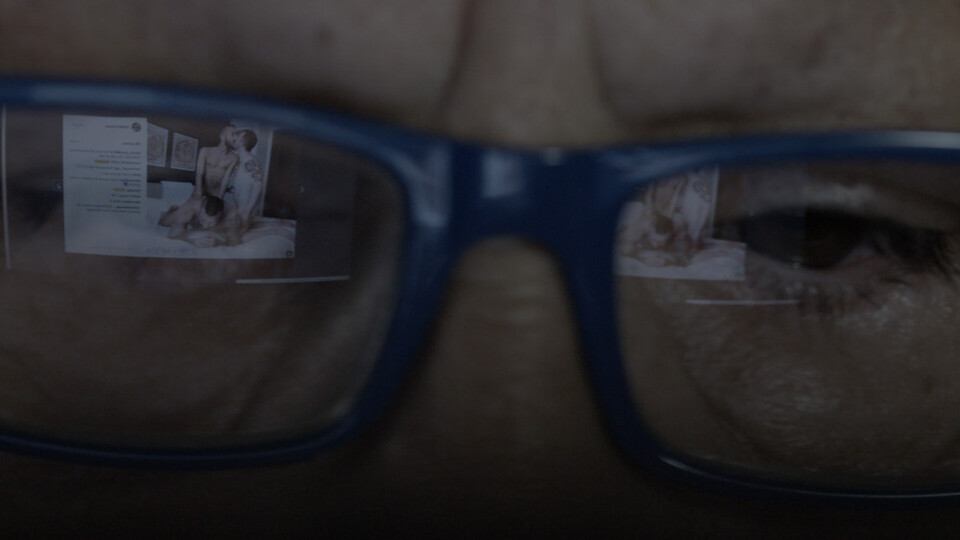To show your own idea of reality
They stand in the back and we can rarely see more than their hand or foot in the picture. The filming couldn’t be often realized without them, but we still tend to ignore them – the extras. In Backstage Action, director Sanaz Azari lets them talk on the camera for this first time and reveals hidden desires and feelings of those who usually don’t get the opportunity to talk.
The film extras are usually chosen based on specific criteria – the colour of their hair, skin or because they own a uniform. Based on which criteria did you choose the extras for your film?
During shooting I preferred groups of extras I found significant when talking about social issues that I wanted to elaborate, or that were somehow connected to current political issues such as the migrant crisis or terrorist attacks. The decision to shoot with a particular group of people and not another depended on several factors: topicality of the advertisements, current political and social issues and searching for different archetypes of the society. I was thinking of groups of “types“ such as African women, villagers, workers, soldiers. I was interested in social groups that could be seen as “cliché“, and I was looking for individuals within these groups that could free themselves from the “label“ of an extra, so they could take a look at the category they had been enclosed in. I wasn’t looking for professional extras that are used to shooting and film sets, as I was interested in ordinary people who are asked to do extras because of their physical features – nationality, skin colour etc.
Then we needed to get the film production’s permission to be allowed to shoot at their set with their extras and that wasn’t easy. Most productions refused. So, their consent or dissent also directed the narration of my film in a way.
The extras are used to stand in front of a camera even though they’re not in the centre of its attention. Is documentary shooting with extras or their attitude any different from shooting with ordinary people?
From the moment I started to film, I wasn’t filming extras anymore but ordinary people as we do in documentaries in general. The difference is that these people are more interested in cinema than ordinary people. Their desire to be filmed met my desire to film them. There were moments I put them onto the set and they suddenly became actors. We were generally shooting in the backstage and it changed to a stage in a while because of our presence and their participation. I remember, once there was an extra who told us: “It’s amazing, I came here to be in a fiction film, but I’ve been waiting here since this morning and nobody has come for me. And now I’m in your documentary!“ Our film was their second chance to “appear in the shot“.
You let the extras speak, but we still don’t know their names. We can listen to their stories but in the end without the names, they become one of many again. This is also the fate of the inflatable dummies in your film – they lose their faces, are thrown on a pile and deflated. Is this your verdict? No one will ever let the extras speak again and they are to remain silent for eternity?
At the beginning of the project I was hoping to name the „nameless“. But during the whole process, things turned out a bit differently. There were too many extras and the shooting time was too short. Barely a day, rarely two. I was usually able to do one or two encounters within this mass of people and got to know those people a little bit. We usually don’t get to know their names during the first encounter. It’s the same in life, we talk about the current issue, this instant necessity that needs to be said and then comes the moment when we introduce ourselves. I would need to spend more time with them to get their names, and I decided not to follow them to their homes but to stay in this unique area of the backstage, this enclosed, remote waiting room, this Beckett-like space. I’m talking about Waiting for Godot which was my source of inspiration when I was writing this film. In the end, I decided to give a metaphorical nature to my dispositif of letting others speak. It’s a film that was born with a close encounter with its subject. I get close to the extra, this being in the back of the image finds itself in the centre of the foreground and becomes a talking being. They become actors of my film (in the sense of active beings) through talking and they become those whose desires are like the desires of their audience.
It’s not the extras who you let talk in your film, it’s people in general who usually don’t have the chance to express themselves. Why is it important to you to let them speak up?
It’s because that what they have to say is more interesting I think. People who usually don’t have the possibility to express themselves live more peculiar lives, that means more useful and urgent to tell. Their life is a poem. It’s a poetry that isn’t loud. It’s a poetry that you need to go and look for and I think it’s one of the missions of art, cinema, literature etc. to reveal the ones that can’t express themselves. Not being able to express yourself often comes from injustice and the cinema is able to establish a little bit of justice very easily. It doesn’t have to be a revolution, change of regime, bloodshed. All you need to do is to show your own idea of reality. I’ve always been a little irritated by actors that shout on the stage, but whisper around a street corner or in a bar about dignified life like from a Shakespeare’s tragedy. That’s why I’m so attached to documentary because I couldn’t do without this passionate story called reality.
Sanaz Azari (1981) is originally from Iran but has lived in Brussels since she was a child. She studied photography and stage design at La Cambre. During her studies, she took part in a theatre course focusing on the Stanislavsky method. Since 2010, she has also focused on documentaries. Her debut film was Salaam Isfahan. A frequent topic of her films is her native Iran.



